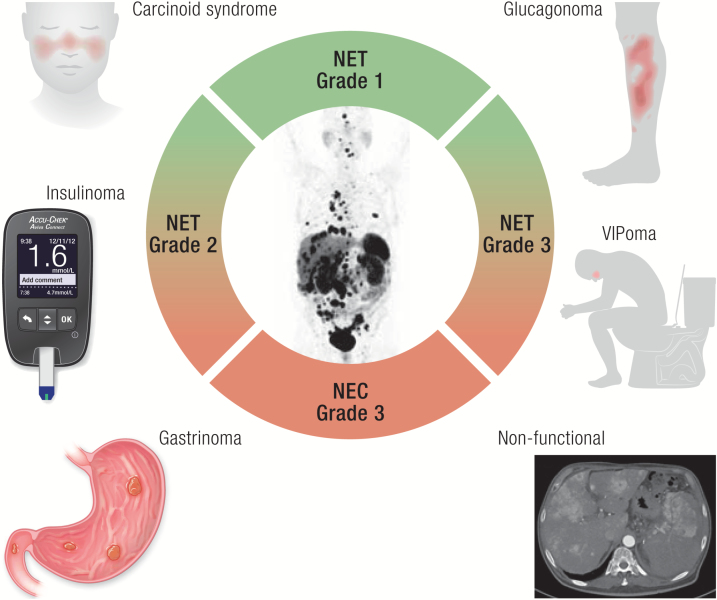- Record: found
- Abstract: found
- Article: found
Advances in the Diagnosis and Management of Well-Differentiated Neuroendocrine Neoplasms

Read this article at
Abstract
Neuroendocrine neoplasms constitute a diverse group of tumors that derive from the sensory and secretory neuroendocrine cells and predominantly arise within the pulmonary and gastrointestinal tracts. The majority of these neoplasms have a well-differentiated grade and are termed neuroendocrine tumors (NETs). This subgroup is characterized by limited proliferation and patients affected by these tumors carry a good to moderate prognosis. A substantial subset of patients presenting with a NET suffer from the consequences of endocrine syndromes as a result of the excessive secretion of amines or peptide hormones, which can impair their quality of life and prognosis. Over the past 15 years, critical developments in tumor grading, diagnostic biomarkers, radionuclide imaging, randomized controlled drug trials, evidence-based guidelines, and superior prognostic outcomes have substantially altered the field of NET care. Here, we review the relevant advances to clinical practice that have significantly upgraded our approach to NET patients, both in diagnostic and in therapeutic options.
Graphical Abstract
Related collections
Most cited references275
- Record: found
- Abstract: found
- Article: not found
Sunitinib malate for the treatment of pancreatic neuroendocrine tumors.
- Record: found
- Abstract: found
- Article: not found
Lanreotide in metastatic enteropancreatic neuroendocrine tumors.
- Record: found
- Abstract: found
- Article: found
